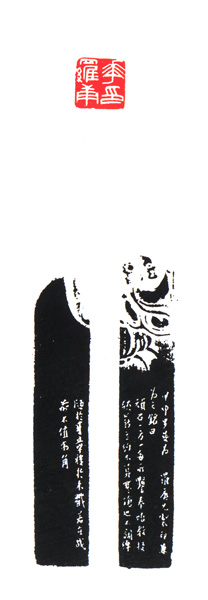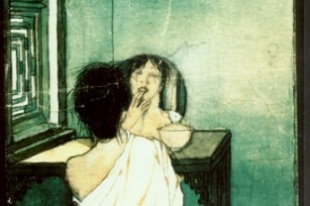An enlightened man


Also on display are calligraphy works by Wen Yiduo. He wrote in a kind of ancient hieroglyphic font called guzhouwen to transcribe the coeval The Book of Songs, the earliest collection of Chinese poetry in existence that dates back to between 11th and 6th centuries BC.
His interest and gift for ancient Chinese characters and calligraphy can also be seen in his 500-plus seal cutting works mostly created in the three years before his death to make ends meet.
"The goal of Wen Yiduo's research was to revive the ancient glory that was partly fossilized in the minds of modern people," says his peer, writer Zhu Ziqing.
He also sketched 36 works during the War of Resistance Against Japanese Aggression (1931-45), on his 1,700-kilometer walk to Kunming from Changsha, Hunan province, in 1938 to join the National Southwest Associated University-a wartime union of top Chinese universities and scholars.
He worked as a professor of Chinese literature at Tsinghua right before the war.
The poet and artist once confessed to his friends, "I would rather be a preacher of art than a creator". The perspective of cultural history and the aesthetic ideas embedded in his art pieces are consistent with those of his works of poetry.





































